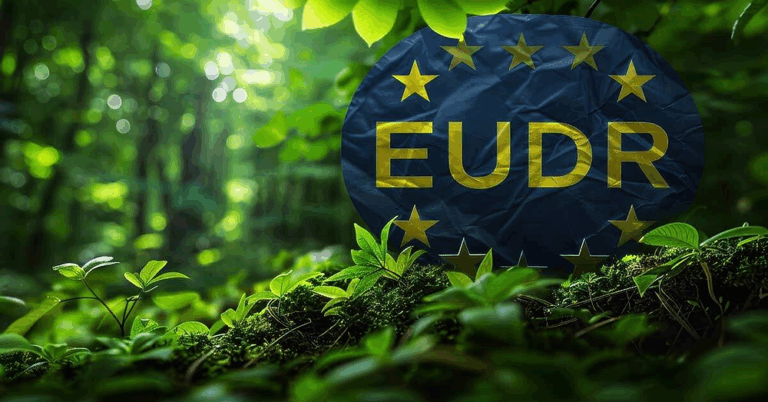
The European Union has approved a new regulation known as the EUDR, a law that seeks to combat deforestation and protect the planet’s forests. Starting december 30, 2026, this law will require that products sold or exported to the European market be deforestation-free and come from legal and sustainable sources. With this measure, the European Union seeks to reduce the environmental impact of agricultural and forestry production, ensuring that the products reaching consumers do not contribute to the destruction of ecosystems.

The regulation applies to raw materials such as coffee, cocoa, timber, soy, palm oil, rubber, and beef, as well as products derived from them. This means that companies wishing to export these goods to Europe must demonstrate the responsible origin of their materials and comply with environmental protection and human rights standards.

The main objective of the EUDR is to promote more responsible and sustainable trade, in which economic prosperity is not achieved at the expense of nature. In this way, it fosters a model that benefits both producers committed to the environment and consumers seeking more ethical products.
To support companies in this process, tools and certifications are being developed that facilitate traceability and transparency in supply chains. These solutions help verify that raw materials come from areas where forests have not been cleared and that local laws are respected. This fosters trust between producers, authorities, and international buyers.

With the implementation of the EUDR, the European Union takes a firm step toward a greener future, in which forest protection and global sustainability become pillars of international trade. This regulation not only seeks to protect the environment but also to open opportunities for companies that commit to responsible practices to grow and access new markets.
Read also:







